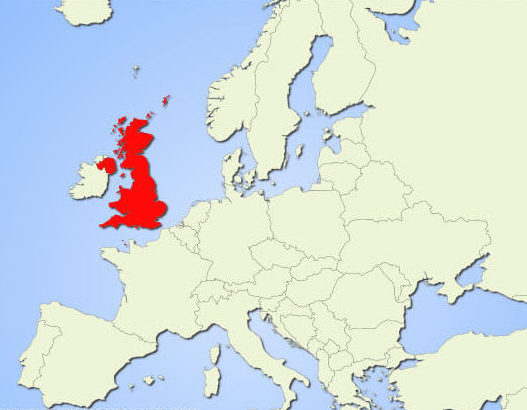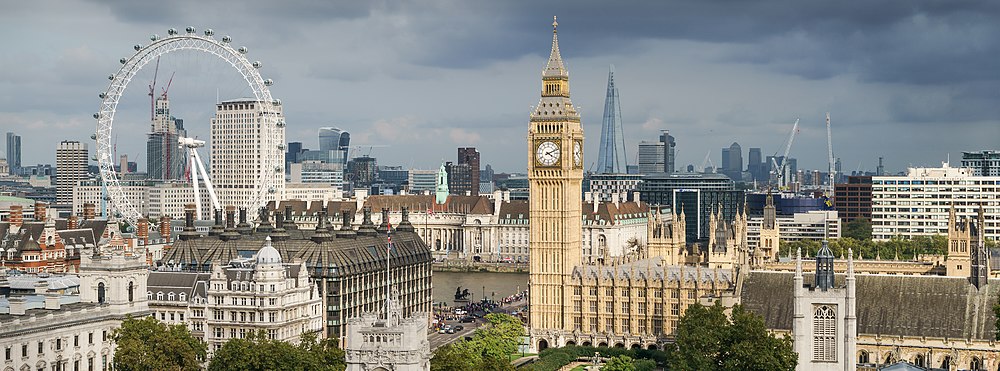
Key Facts:
Climate – temperate; moderated by prevailing southwest winds over the North Atlantic Current; more than one-half of the days are overcast
Population (2020) – 67,886,004
GDP (Per Capita) (2019) – $41,030
Official language – English
Major religions – Christianity (59.5%), Hinduism (1.5%)
Ethnic Groups – White (87.1%), Asian (7%), Black (3%), Mixed (2%)
Government – parliamentary constitutional monarchy; a Commonwealth realm
Currency – Pound Sterling (GBP)
Taxes – Individuals who are resident and domiciled in the UK are subject to tax on their worldwide income and gains. Different treatment may apply where a person is UK resident but not UK domiciled.
Individuals who are UK resident under the statutory residence test and domiciled in the UK are subject to UK tax on their worldwide income. Residents who are not domiciled or deemed domiciled in the UK may make a claim for the remittance basis of taxation to apply to overseas income, in exchange for an additional tax liability of $39,450 per annum for taxpayers who have been UK resident for seven out of the previous nine tax years, rising to $78,900 once resident for 12 out of the previous 14 tax years. The remittance basis also may apply without the requirement to make a claim, if (broadly) the unremitted overseas income and overseas capital gains are less than $2,630 or if certain other conditions are fulfilled.
Income tax is charged at progressive rates. Scottish rates of income tax apply to the non-savings non-dividend income of Scottish residents. Scottish residents are UK resident individuals with a close connection to Scotland, typically based on the location of their only or main home. UK-wide rates and bands apply to savings and dividend income of Scottish residents.
Similarly, certain devolved income tax rates apply to the non-savings non-dividend income of Welsh residents, although these currently are aligned to UK-wide rates.
The rate of capital gains tax is determined by the total of capital gains and income. Capital gains tax is payable at a rate of 20% where an individual is liable to pay income tax at the higher or additional rate, or the dividend upper or additional rate. For 2019/20, if taxable income is less than $49,312, the rate of capital gains tax is 10%, except to the extent that the gains, when added to income, would exceed the $49,312 limit. In that case, the excess is taxed at 20%. An 8% surcharge, giving a rate of 18% or 28%, applies for gains on residential property and carried interest.
Entrepreneurs’ relief reduces the rate of capital gains tax to 10% for certain business assets, subject to a lifetime limit of GBP 10 million of gains per individual. Investors’ relief also can reduce the rate of capital gains tax to 10% on a lifetime limit of GBP 10 million of gains per individual. This is separate from entrepreneurs’ relief, and applies only to certain unlisted shares in trading companies that are held for at least three years.
Individuals who are domiciled and resident in the UK are subject to capital gains tax on all chargeable assets, regardless of where they are situated. Similar to the rules for overseas income, an individual who is not domiciled or deemed domiciled in the UK may make a claim for the remittance basis of taxation to apply to any capital gains on non-UK assets.
The gains from the disposal of UK real estate and certain UK real estate-related investment assets held by nonresident individuals also are subject to UK capital gains tax.
An annual exemption ($15,781for 2019/20) is available to reduce capital gains, except in tax years where a claim for the remittance basis is made. Where individuals who leave the UK to become nonresident realize gains in a tax year after their departure, such gains normally are not chargeable to UK capital gains tax, unless the individuals are absent from the UK for five years or less, and they acquired the asset before they left.
Residency by Investment:
You can currently apply for a permanent residence card if you’ve lived in the UK for 5 years.
However, you do not need a permanent residence card to confirm your residence status in the UK unless:
- you’re an extended family member of someone from the European Economic Area or Switzerland and are yourself not an EEA or Swiss national
- you want to apply for British citizenship
- you want to sponsor your partner’s visa application under the Immigration Rules
Citizenship by investment:
Investment Options:
Applicants must invest no less than 75% of the specified investment amount in the U.K. by way of U.K. government bonds, share capital or loan capital in active and trading U.K.-registered companies. The remaining 25 percent must be invested in the U.K. either by purchasing assets or by depositing the funds in a U.K.-regulated financial institution.
The higher the investment (and therefore the net personal assets required), the faster the applicant will obtain their stay for settlement (ILR).
Option 1:
Full Investment – £2 million
Stay for Settlement (ILR) – 5 years
Option 2:
Full Investment – £5 million
Stay for Settlement (ILR) – 3 years
Option 3:
Full Investment – £10 million
Stay for Settlement (ILR) – 2 years
Why it makes sense?
- Diverse and multicultural society represented by large cultural and ethnic communities.
- Superior standard of education, a broad network of state and private schools, and more than 150 universities and higher education institutions.
- It is one of the best free health care services in the world.
- It is a member of the G8.
- It is a key member of the EU, which means greater business opportunities throughout Europe.
- Unrivaled financial business center (London).
- Attractive tax regime for high net worth investors classed as U.K. resident, non-domicile.
- The mobility of travel and security of a U.K. passport.
To request the most current information regarding this program please contact us below.
To get more information & assistance, please submit the form below and our specialist will get in touch with you at the earliest.














